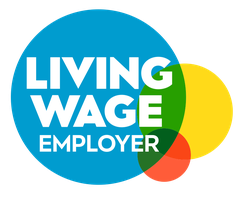Working in partnership with communities

One of the questions we get asked the most at Place Matters is how to work with communities equitably. It is one of the guiding principles of place-based practice that power is shared with communities and equity at the heart of the way we work (see our blog on equity), but there are significant challenges in how we constitute and nurture those partnerships and we wanted to share here some examples we have seen of where this has been done with some success.
Engagement starts with the way we think about how we want to hold power and the value of sharing power with communities. How do those holding formal positions such as making policy, funding or commissioning services see their role as leaders of or alongside the community? What do they see as the value and potential of the community in working as equal partners? There has to be a shift first of all in how leaders conceive of their role and a mindset that seeks to build coalitions of change.
The Be Wigan Experience is a well-known example of how local government has sought to create meaningful partnerships with community organisations, enabled by a programme where all public servants are asked to examine their attitudes towards local people and think about their working relationship. Designed by an anthropologist, it sets out to change the fundamental culture of local public service and alongside it, the Wigan Deal sets out the mutual responsibilities of local government and residents. We talked to local community businesses in Wigan about how this is working in practice and whether they have seen changes in the way the Council worked with its communities and here is a link to a case study we developed with Wigan and Leigh Community Charity.
Critically, it is about the public sector being outwardly focused and believing in the value of community leadership and social enterprise. What people in Wigan told us is that by investing time in developing relationships and trust between local people, political leaders and officers they built confidence in sharing resources and power with people and organisations developing, as a result, a thriving voluntary and social enterprise capability that can reach deeply into different parts of the community and create a diverse range of service interventions. But there are also challenges. It is often difficult for small community organisations to navigate their way through public procurement and social value only goes so far to level the opportunity.
Sometimes residents also need to shift the way they think about the agency they hold. Jon Alexander in his book Citizens argues that we have become used to a narrative where we see ourselves as consumers — demanding to be served by the state. He argues that citizenship means being an active participant. Many people step forward as volunteers and social entrepreneurs, but many more of us see the work of government and public services as the responsibility of the state. Here is a link to the blog we wrote after a webinar we held in 2023 with Jon.
At the 2023 New Local Stronger Things Conference, Camden Council Leader Georgia Gould talked about the role of local government leveraging the innate activism of communities; finding that when local people are invited to be part of local decision-making through Citizen Assemblies they come to radical and imaginative solutions. Sharing their experiences of participating in Assemblies, Camden residents talked about coming to a better and more empathetic understanding of what other residents needed and holding the responsibility for acting in the collective interest. As a result of building awareness of what the community needs, the voluntary and community sector in Camden is growing, bringing with it new sources of funding and investment.
Initiating Assemblies that influence those in power don’t have to be the preserve of local authorities. Black Thrive and Catalyst 4 Change ran a community assembly for over 100 people in Birmingham bringing those they wanted to influence into a space and conversation curated by the Black community on their terms. Public sector stakeholders invited to the event fed back that they had participated in conversations and got insights that they wouldn't have otherwise accessed. Read or listen to our case study on the Assembly.
Community organisations can take the initiative in bringing government to the table on their terms, but real change comes when those holding power believe that working with communities as partners is mutually beneficial. As financial pressures on public services persist, partnership with the community seems an essential route to make resources go further, but it will be no small thing for those used to traditional sources of power and responsibility to share. What is emerging from these and other examples, is the evidence that communities do want to and can share power, and there are very significant benefits in accessing ideas, accessing community assets and resources, better understanding the needs and priorities of the community, building better cohesion and in bringing new and complementary resources into communities. We need to build on and share our knowledge of good partnerships to help encourage those looking to understand how partnerships can work in practice. Please share examples with us via info@placematters.co.uk so we can make these more widely available via our practice stories, webinars and blog series.

